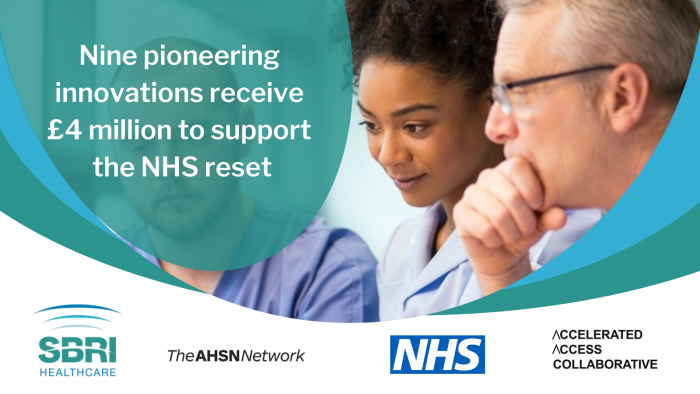
Cyted to pilot Cytosponge in the community to support NHS reset and recovery of endoscopy services

Project CYTOPRIME will divert patients living with reflux and Barrett’s Esophagus from endoscopy waiting lists
The North-West has the longest waitlist for endoscopy in England, with more than 50% of patients waiting over six weeks for a potentially life-saving diagnostic test
Cyted has today announced it has received £0.5 million funding from the Small Business Research Initiative (SBRI) Healthcare to pilot the Cytosponge test in the community care setting across the North-West of England.
Cyted will work in partnership with the Innovation Agency North West Coast Academic Health Science Network, the Lancashire & South Cumbria Cancer Alliance, the Cheshire & Merseyside and Lancashire & South Cumbria NHS Integrated Care Systems, Unity Insights and Medtronic.
Project CYTOPRIME will transform local care pathways across Cheshire & Merseyside and Lancashire & South Cumbria. Healthcare professionals will receive training to deliver the Cytosponge test and establish their own clinics in GP centres and community diagnostic centres.
Through Project CYTOPRIME, we will offer the Cytosponge test to patients on endoscopy waiting lists living with reflux (heartburn) symptoms and Barrett’s Oesophagus. The Cytosponge positively identifies approximately 15% of these patients to have signs of early oesophageal cancer1, who can then be prioritised for endoscopy and treatment.
Implementing innovative ways to triage endoscopy waiting lists is more important than ever, with the pressures felt across the country. These pressures are particularly felt in the North-West, where we have one of the longest waitlists for endoscopy at 13,738 patients and over 50% waiting more than six weeks for a potentially life-saving diagnosis.2
By delivering the Cytosponge test in a community setting, Project CYTOPRIME will relieve pressure on secondary care teams and support recovery of endoscopy services. Offering the Cytosponge test in the community also seeks to create health equity by overcoming barriers and reducing geographic and socio-economic inequality in access to diagnostic services.
By transforming local care pathways, Project CYTOPRIME will build a blueprint to help the NHS identify those “missing patients” who have not yet presented to their GPs or been diagnosed with oesophageal cancer. Expanding access to the Cytosponge test will save lives by shortening waiting times between referral and diagnosis, catching oesophageal cancer at an earlier stage where treatments are more likely to be effective.
Throughout Project CYTOPRIME, Cyted will evaluate the impact of offering the Cytosponge test in the community for the healthcare system. If successful, this service model for the Cytosponge test could be considered and adopted by other regions across the UK.
The award is one of nine innovations to receive £4 million through a nationwide funding call by SBRI Healthcare, in collaboration with NHS England and NHS Improvement, the AHSN Network and NHS Accelerated Access Collaborative.
Marcel Gehrung, CEO and Co-Founder at Cyted, comments: “We are delighted to be expanding the use of the Cytosponge test to community settings in the North-West of England with support from the SBRI.
This will support the recovery of endoscopy waiting times in one of the regions under most demand across the country, helping patients access potentially life-saving cancer treatment sooner and relieving some stress and concern during a difficult time. We look forward to working with our NHS partners to broaden the reach and impact of the initiative in the coming months.”
Dr Jodie Moffat, Head of Strategic Evidence and Early Diagnosis Programme Lead, at Cancer Research UK, comments:"After decades of research by Cancer Research UK-funded scientists, we are excited to see the different ways Cytosponge is being explored in practice, including this latest project in the North-West. A quick, efficient, and minimally invasive diagnostic test like the Cytosponge could mean that some patients don’t need an endoscopy, which could save people from a long and anxious wait and also free up capacity for others."
